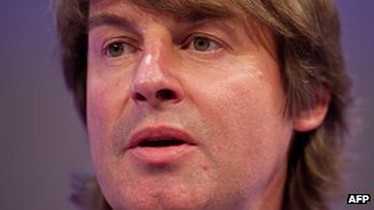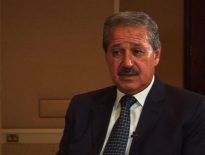The chief executive of security firm G4S will go before MPs later to explain why his company was unable to provide the Olympics staff it promised.

Nick Buckles has already apologised after 3,500 extra troops had to be deployed to meet the firm’s shortfall.
Culture Secretary Jeremy Hunt said it was no time for a “witch-hunt” but “contingency plans” were in place if G4S further failed to deliver.
It has emerged police have also helped fill gaps left by the company.
There have been a number of developments as preparations for the Games continue:
Heathrow airport had its busiest day on Monday, handling nearly a quarter of a million passengers, as Olympic athletes and officials started arriving from 50 countries
Those arriving were the first to use dedicated Games Lanes on the M4, with the Olympic Route Network covering London’s roads
An insider from the committee organising the Olympics (Locog) has told the BBC that fit failed to deal with the problems at G4S despite warnings over the last 18 months.
Meanwhile, the Olympic torch is passing through East Sussex and Kent on Tuesday.
Commenting on the security situation following G4S’s staffing problems, Metropolitan Police Assistant Commissioner Chris Allison told BBC Radio 4’s Today programme that the “basic plan” for the Games remained “exactly the same”, albeit with “a different mix of people”.
Mr Allison, who is the national Olympic security co-ordinator, added: “In the event of a major incident happening, everybody understands that the police will take over and run that major incident while supported by everybody else.”
‘Back-up plan’
Theresa May told the Commons on Monday that G4S had “repeatedly” promised they would exceed targets.
The home secretary reiterated that the government only knew on Wednesday that there would not be enough G4S security guards and had reacted quickly.
In her statement to MPs, Mrs May denied the company had “deliberately deceived” the government, insisting the firm’s problem was “workforce supply and scheduling”.
The prime minister’s official spokesman said David Cameron was involved in the decision to deploy extra soldiers.
Mr Buckles, who is due to appear before the Commons Home Affairs Select Committee, has said he is “bitterly disappointed” at his company’s failure to meet the terms of its contract.
The company, by its own admission, stands to lose up to £50m on the contract, worth a total of about £280m, after being unable to provide the 10,000 staff it had been contracted to deliver.
Culture Secretary Jeremy Hunt told the BBC’s Newsnight programme the government had “moved very quickly” when it learned of the company’s staffing issues, adding that ministers would have been failing at their jobs if they didn’t have a back-up plan that worked.
The Ministry of Defence has confirmed army officials have met G4S over security.
Police, meanwhile, have had to deploy extra officers at short notice from eight UK forces to do Olympic security work after the company’s staff failed to turn up to venues.
G4S said security was tightened at venues before staff were assigned but that this was being rectified over the “coming days” and should lead to the withdrawal of police from roles assigned to private security.
Greater Manchester Police had to deploy officers to provide security at a hotel in Salford where four Olympic football teams will stay – after only 17 of an expected 56 G4S staff turned up for work.





